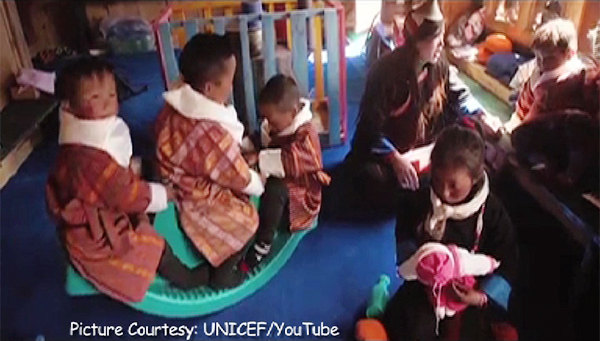 Early Childhood Care and Development (ECCD) is considered crucial for a child’s overall growth. However, going by what was reflected in the recently released ECCD evaluation report, the disability prevalence is highest at 27 per cent for children aged two to five years because of which a large proportion of children with disabilities are currently missing out on attending ECCD centres.
Early Childhood Care and Development (ECCD) is considered crucial for a child’s overall growth. However, going by what was reflected in the recently released ECCD evaluation report, the disability prevalence is highest at 27 per cent for children aged two to five years because of which a large proportion of children with disabilities are currently missing out on attending ECCD centres.
The report also highlighted that service providers lack the necessary knowledge and experience to provide services to children with disabilities.
There is an urgent need to ensure that crèche caregivers, ECCD facilitators, health workers and primary school teachers are equipped to support the participation of children with disabilities. The report emphasised the need to undertake a national profiling exercise to develop an accurate assessment of the children’s special needs.
“We do not have data on Early Childhood age group, particularly because we haven’t undertaken any specific study as such. But definitely having data is critical because the earlier you are able to track disabilities, the easier it is when they are young. So definitely that would be critical to supporting children’s development very early in life,” said Karma Gayleg, an ECCD Specialist with the Education Ministry.
The study disclosed that more than one child in ten had some type of disabilities. Around 12 per cent of all parents in the evaluation reported that their child had difficulty such as seeing, hearing and self-care. It stated that children whose parents reported difficulty are performing at significantly lower levels compared to their age-mates. The Draft National Education Policy 2019 specifies that ECCD must address the needs of all 36-71 months old children and be inclusive of gender, disabilities, socioeconomic backgrounds or location. In line with this, the ministry is currently in the process of establishing a model inclusive ECCD centre at Changangkha in Thimphu.
“Once that is in place, we will have people who will be working in the centre and also functioning as a model centre for the capacity building of other ECCD centres across the country. Once the centre is in place, we will have the facilitators working there recruited and their capacity built so that they know how to organise a truly inclusive program for children,” he added.
According to the two-stage child disability study conducted in 2011, the most prevalent form of disability among children aged 2-9 years old was cognitive at 15 per cent, followed by behavioural (5.6%) and motor (5.5%). As of today, there are more than 9,500 children and 903 facilitators in 379 ECCD centres.
Sonam Pem






